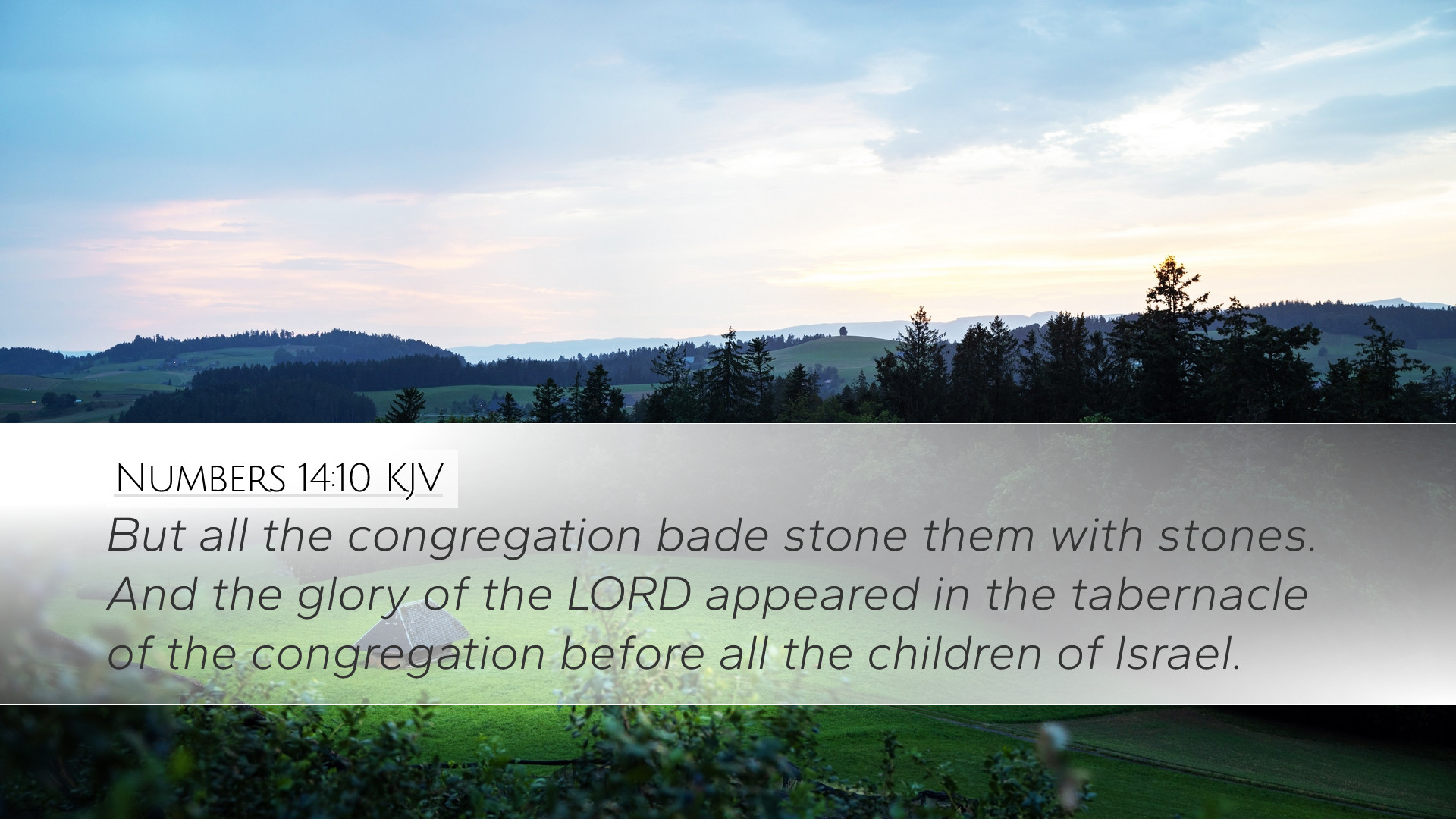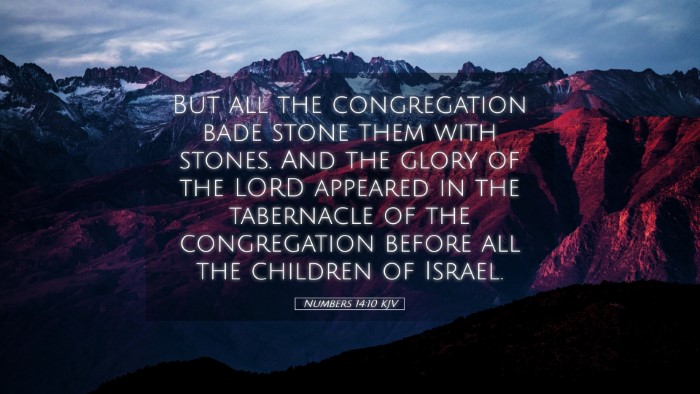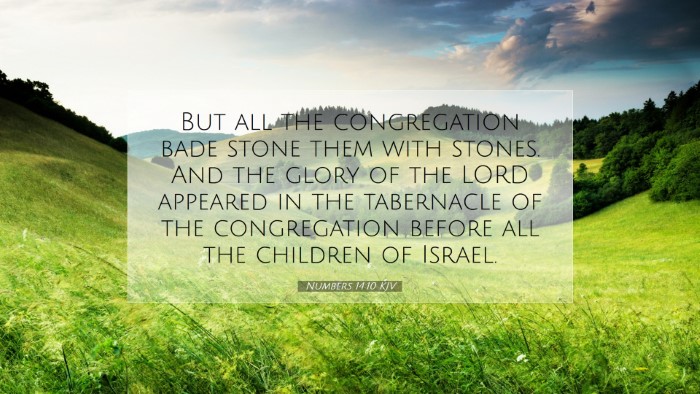Commentary on Numbers 14:10
Verse Text: "But all the congregation said to stone them with stones. And the glory of the LORD appeared in the tent of meeting to all the people of Israel." (Numbers 14:10)
Contextual Overview
This verse occurs at a critical juncture in the narrative of Israel's wilderness wanderings. After receiving a negative report from the ten spies regarding the Promised Land, the congregation of Israel reacts with fear and rebellion against Moses and Aaron, expressing their desire to return to Egypt.
Historical and Theological Significance
- Rebellion Against God's Plan: The reaction of the people indicates a deep-seated lack of faith in God's promise. Their intention to stone Moses and Aaron reflects a serious breach of trust in God's leadership.
- Divine Intervention: The appearance of the glory of the Lord signifies God's disapproval of Israel's actions and His readiness to intervene at such a crucial moment.
- The Role of Leaders: Moses and Aaron serve as mediators between God and His people, a recurring theme in the Old Testament. Their leadership is tested as they face the wrath of the congregation.
Insights from Public Domain Commentaries
Matthew Henry's Commentary
Henry emphasizes the folly of the people’s decision to turn against their appointed leaders. He notes that the act of stoning was a severe punishment, illustrating the intensity of their rebellion. Henry comments on the contrast between the people's fear and Joshua and Caleb’s faith, underscoring the importance of choosing faith over fear.
Albert Barnes' Commentary
Barnes provides insight into the significance of the Lord's glory appearing at the tent of meeting. He argues that this manifestation served as both a warning and a reassurance to the people. The glory of God, being a symbol of His presence, shows His immediate involvement in the affairs of Israel. Barnes further highlights how their rebellion called for divine judgment, and the Lord expresses His displeasure through this manifestation.
Adam Clarke's Commentary
Clarke elucidates the cultural backdrop of the Israelites' response, considering their frustrations and fears in the wilderness. He explores the mental and spiritual disarray that led the people to such destructive behavior. Clarke also points to the juxtaposition of divine revelation and human rebellion, noting how the glory of God served not only as a testament to His power but also as a call to repentance for the people.
Applications for Today
- Faith in Times of Trial: This passage serves as a reminder to believers about the importance of steadfast faith, especially during challenging circumstances.
- The Cost of Rebellion: The Lord’s glory appearing is a profound lesson about the consequences of rebellion against God and His chosen leaders. It teaches the gravity of turning away from divine guidance.
- The Importance of Spiritual Leadership: With Moses and Aaron as examples, this text underscores the critical role of spiritual leaders and the responsibility they carry in guiding their communities in faith.
Conclusion
Numbers 14:10 illustrates a crucial moment in Israel's journey that encapsulates the themes of rebellion, divine presence, and the critical nature of leadership. The reflections from ancient commentaries affirm the enduring relevance of this passage, calling contemporary believers to examine their faith and responsiveness to God in the face of trials.


